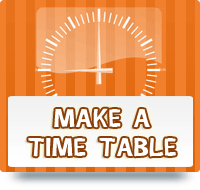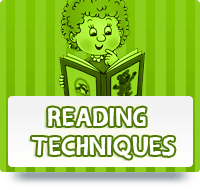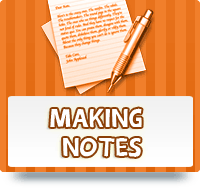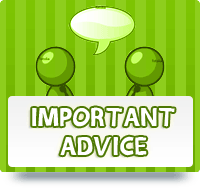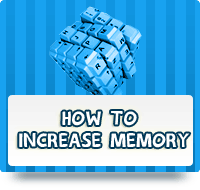- AFFILIATED TO CBSE : AFFILIATION NO 1930274
- |
- CONNECT
Quick Links
Photo Gallery
Learning Styles
Long ago, there was a time, when parents told children to read slowly and loudly to understand everything they read. A lot of things have changed. Today’s children have bigger syllabi to learn. Now, learning experts and teachers ask students to read faster and grasp important points. Here are a few tips for students who have a lot to learn, but very little time.
Make A Time Table

Your timetable should have separate time for eating, playing games, exercise, reading newspaper and study materials. You should not only make a timetable, but also should stick to it. Give priority to leisure and games in the afternoon, but separate early morning time for studies. Make sure you read all the class notes before you go to bed. While allotting time to different subjects, allot more time to difficult subjects. You need only less time for the subjects that are easier for you to learn.
Taking Notes
Taking notes is an important part of learning. You need to take lecture notes (classroom notes) and notes from your textbook.
- Go through the lessons on the day before your teacher would teach it in the class. This gives you an idea of what to expect.
- Write down important ideas as bullet points. One word or a phrase is enough to include an idea.
- Give prominence to important ideas by underlining them in your notes.
- Leave lot of space in each face of paper. This will help you add new points later.
- Organize your notes into separate files. Each subject should have a different file. Label the outer page of the file with name of the subject and your teacher. You should also neatly organize each file according to chapters and topics.
- Read the notes (important points) in the night, before going to bed. Read only once. This helps you memorize the lessons clearly.
- While taking notes from a book, label the name of the book and author. Also, note the page number next to your notes. It makes it easy for you to refer to the book three or six months later.
Reading Techniques
You need to read fast and grasp more things. Here are some pointers to fast reading.
- Note the name of the book and its author in the reading log.
- Take a quick look from cover to cover to identify the important chapters.
- Take a quick look over the chapter, identify the important points, and note them down.
- Read the lesson fast. To increase the speed of learning, pass your eyes through the top of the letters and not through the centre. For example, while reading, pass your eyes through the area where the dot above the letter i appears and not through the loop of the letter o.
- Don’t take notes while reading.
- Don’t go back to read a word or a sentence. If you don’t get the idea of the subject, you can come back to the sentence after you finish reading the chapter. Never look up a dictionary while in the middle of reading a chapter. Refer dictionary only if you don’t automatically understand the meaning of a word after finishing the paragraph and the chapter.
- Note down the points you remember. Now check if you have taken all the important points, with another fast reading.
Making Notes
It is a very good habit to make notes of what you read. Newton, Einstein, R.L. Stevenson, Charles Darwin, and other great people prepared notes for their studies. The advantages of making notes are
- This is a condensed form of the matter studied and can be used to read, understand and revise.
- Notes are an expression of the matter studied, in one’s own words.
- With the help of notes one can easily remember the main ideas and important details.
- It is processed, cooked form of the whole material ready for digestion. Therefore, do not miss making notes of what you hear or read.
When to use Notes
Your timetable should have separate time for eating, playing games, exercise, reading newspaper and study materials. You should not only make a timetable, but also should stick to it. Give priority to leisure and games in the afternoon, but separate early morning time for studies. Make sure you read all the class notes before you go to bed. While allotting time to different subjects, allot more time to difficult subjects. You need only less time for the subjects that are easier for you to learn.
Important Advice
Prepare fully. What to read and what to leave
is a wrong attitude. Do not leave or set aside the question asked in
the previous papers. Take care of small things, like your pen, pencil, and ink/refill. Your ink must be brilliant and you
must have an extra pen. Your writing must be clear and legible. A bad handwriting annoys the examiner. Keep your watch well
set and in order. Take care of your handkerchief, spectacles etc. Every small thing has its own importance. Take care of
everything; God is always willing and keen to grant you success. Only you must be sure how keen you yourself are!!
How to Increase Concentration
Your timetable should have separate time for eating, playing games, exercise, reading newspaper and study materials. You should not only make a timetable, but also should stick to it. Give priority to leisure and games in the afternoon, but separate early morning time for studies. Make sure you read all the class notes before you go to bed. While allotting time to different subjects, allot more time to difficult subjects. You need only less time for the subjects that are easier for you to learn.
How to Increase Memory
Try to understand completely what you read or hear. Repeat what you hear or read in your mind. Make notes of what you learn at school or read from books. A single word can help you remember a whole idea.
Give Numbers to the Points
Don’t try to bring to memory all the things you have learned. Learn the technique of bringing to memory one thing at a time.


 SCHOOL CALENDAR
SCHOOL CALENDAR LATEST ANNOUNCEMENT
LATEST ANNOUNCEMENT





